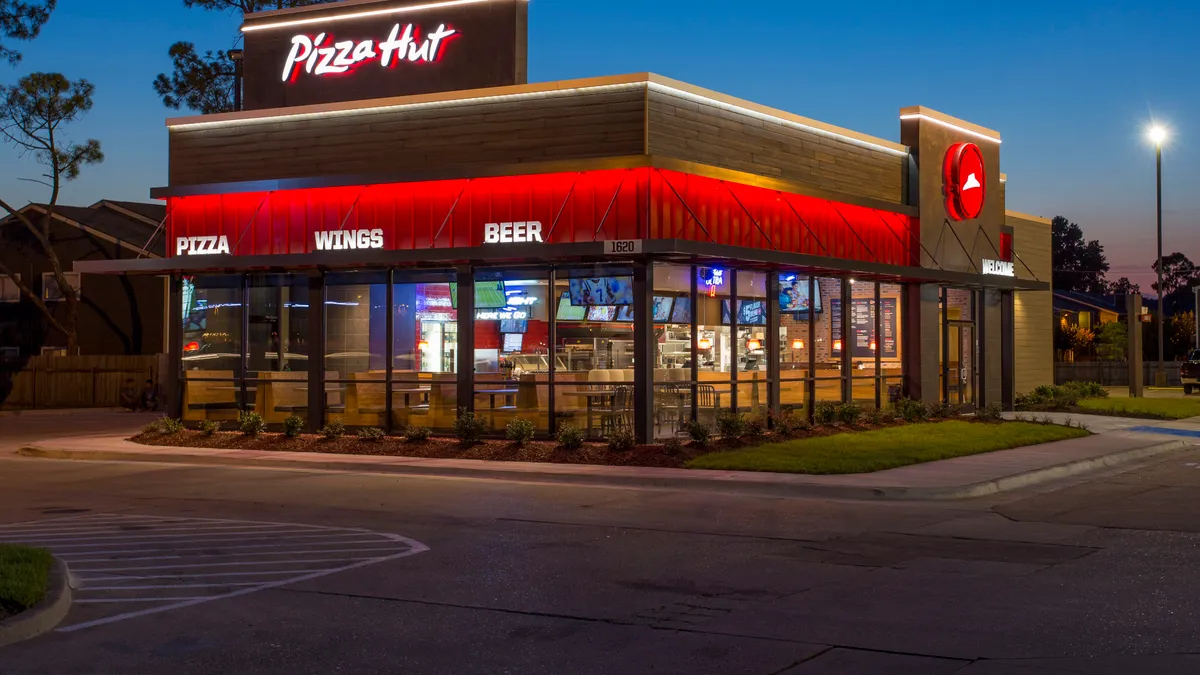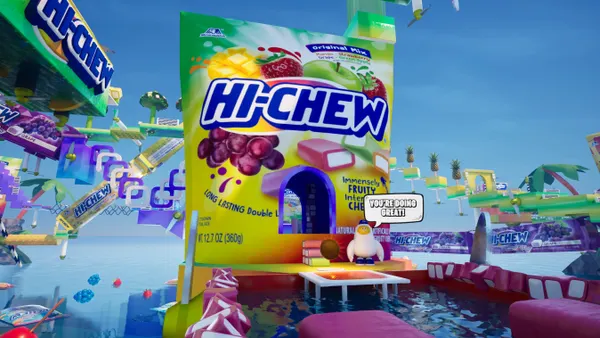Dive Brief:
- Yum Brands plans to acquire Australia-based Dragontail Systems Limited, a provider of AI-based kitchen order management and delivery technology, for $72.3 million ($93.5 Australian dollars), according to a press release.
- The restaurant company will pay in cash for all of the issued share capital in Dragontail. The transaction is expected to close by the end of Q3 2021.
- This marks the third technology acquisition made by Yum Brands this year. In March, it acquired Kvantum, an AI-based consumer insights and marketing performance analytics company, as well as Tictuk Technologies, an omnichannel ordering and marketing platform company.
Dive Insight:
Yum has been bulking up its technology capabilities and this latest acquisition focuses on improving the delivery experience.
Dragontail's platform uses AI to automate the kitchen flow, prepare for delivery, schedule drivers, manage staff and drivers, and provide real-time alerts, among other capabilities. It can also be used with third-party food delivery partners and offers a consumer-facing feature allowing diners to track their orders.
Nearly 1,500 Pizza Hut restaurants in over 10 countries currently use Dragontail's platform. If the acquisition is successful, Yum plans to scale Dragontail's technology globally.
"With Dragontail, we expect to tap into the power of AI to accelerate and further enhance our delivery technology capabilities, especially at Pizza Hut, and optimize the end-to-end food preparation process," Chris Turner, Yum's chief financial officer, said in the press release.
Over the last few years, Yum has worked to improve the overall customer experience at its Pizza Hut locations. In March, it said it added drive-thru lanes to 1,500 Pizza Huts across the U.S. It also has been working to convert and build more of its Express stores, which emphasize carryout and delivery, and tested various technologies, including pickup cubbies, delivery robots and in-store kiosks.
One of Yum's key strategies is continued acceleration of digital and technology initiatives around the globe, with a focus on trying to provide customers with new and seamless ways to access its brands, CEO David Gibbs said during the company's Q1 2021 earnings call. The company is also developing its own in-house technology, including an e-commerce platform for KFC.
Yum turns toward acquisitions and bringing the technology in-house if it sees a competitive advantage and the switching costs would be too high, Dave Russell, Yum's senior vice president and corporate controller, said during the call. If the switching costs are low and there is less strategic capability, the company will contract with the service provider, he said.
Building up a technology platform, especially when it comes to Pizza Hut, will allow it to go toe-to-toe with Domino's, which has leaned heavily on technology for decades. In March, it partnered with AI company Datatron to help improve the chain's in-store operations, generate revenue and improve the customer experience. Domino's is also working on technology and operating practices to keep delivery drivers in their cars, meaning stores would run food to the drivers, allowing them to keep busy and earn higher wages, Ritch Allison, Domino's CEO, said during the company’s Q1 2021 earnings call. In Houston, the company is running autonomous deliveries with Nuro.














